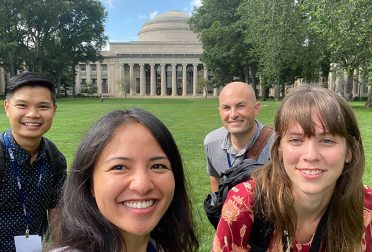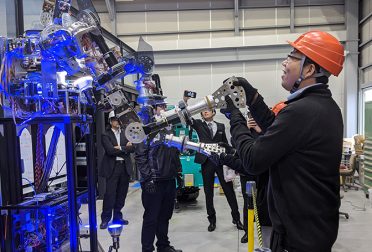MIT SDM Systems Thinking Webinar Series
Richard de Neufville, Ph.D.
Professor of Engineering Systems and of Civil and Environmental Engineering, MIT
Download the presentation slides
Date: September 23, 2013
About the Presentation
Airports routinely suffer breakdowns, delays, and disasters that are the exception in other fields. When viewed as systems, airports are relatively simple compared to the aircraft they serve and the global communication networks they use daily. So, what’s the problem, and why don’t these systems work together correctly?
World-renowned expert MIT Professor Richard de Neufville will use specific examples to detail the inside story and the fundamental problem: how airports are planned, designed, and managed. To illustrate, he will discuss designers’ and managers’ major blind spots, namely:
- Neither viewing nor developing airports as systems. Each airport and terminal building is, almost without exception, custom-made.
- Failing to design airport systems. Standard practice is to design bits and pieces for particular purposes, implicitly hoping that the assemblage will function well together for the airport’s eventual actual needs.
- Operators who routinely fail to successfully manage waits and delays. This is true even though functionally the airport consists of sequences of queues.
A question-and-answer period will follow the main presentation.
About the Speaker
Professor Richard de Neufville is the coauthor of Airport Systems Planning, Design, and Management (McGraw-Hill, with MIT Professor Amedeo Odoni, and assisted by Dr. Peter Belobaba and Dr. Tom Reynolds). Its second edition appeared in May 2013 and is a 50 percent rewrite from the first edition, since so much has changed in the last decade.
Dr. de Neufville also cowrote Flexibility in Engineering Design (MIT Press 2011, with Dr. Stefan Scholtes), which shows how to use design flexibility to maximize the expected value of design in the context of the inevitable great uncertainty about future demands.
He is a member of the Leadership for US Airport Cooperative Research Program. His many prizes include the Sizer Award for the Most Significant Contribution to MIT Education, the McKelvey Award for Aviation Excellence, and the US Federal Aviation Administration Award for Excellence in Aviation Education.
He has extensive practical experience, having participated in airport planning, design, and management on all continents except Antarctica. Recent international projects concern the redevelopment of a second airport in Bangkok; the planning of a new runway in London; and the design of a terminal in Manila, the Philippines.




